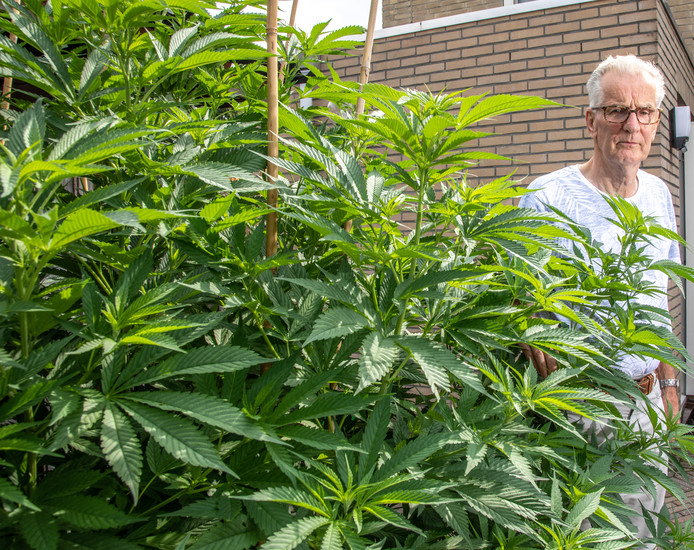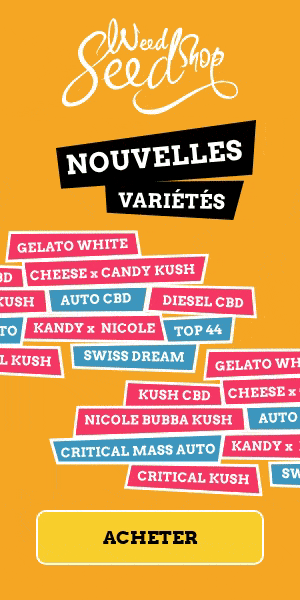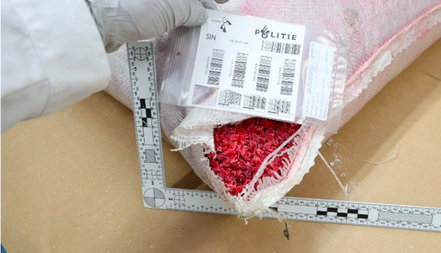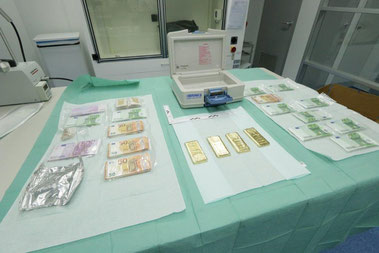Cannabis is NOT legal in The Netherlands
Contrary to common belief, cannabis is not legalized in the Netherlands; rather, it is tolerated for purchase in coffee shops, with a maximum limit of 5 grams per person.
Historically, the Netherlands was among the pioneering countries to tolerate cannabis use. However, amidst a global trend of legalization—whether for medicinal or recreational purposes—the Netherlands has opted to tighten regulations surrounding cannabis.
Translation of regulations from the state website
Tolerance policy for soft drugs and coffee shops
Because soft drugs are less harmful to health than hard drugs, different rules sometimes apply. Coffee shops can sell weed and hashish under strict conditions and are not prosecuted for doing so. This forms the essence of the tolerance policy.
The Public Prosecution Service also refrains from prosecuting individuals for possessing small quantities of soft drugs. This is the crux of the matter:
- A maximum of 5 grams of cannabis (weed, hash) is allowed,
- A maximum of 5 hemp plants to grow your own.
Tolerance criteria for coffee shops
For the sale of weed and hashish, coffee shops must adhere to rules (the tolerance criteria). A coffee shop must meet the following conditions:
- No more than 5 grams of soft drugs may be sold per person per day.
- Hard drugs may not be sold.
- No soft drugs may be sold to minors.
- Minors may not be admitted to a coffee shop.
- No alcohol may be served.
- Drugs and coffee shops may not be advertised.
- No nuisance to the environment must be caused.
- The trading stock may not exceed 500 grams.
- Access and sales are restricted to residents of the Netherlands.
Selling soft drugs remains punishable
The sale of soft drugs remains punishable. If coffee shop owners do not comply with the conditions, they can be prosecuted, and the mayor can close the coffee shop temporarily. To prevent nuisance, municipalities can set additional requirements for a coffee shop. For example, adjusted opening times or a greater distance from schools.
Access to coffee shops stricter
The government aims to combat nuisance and crime associated with coffee shops and drug trafficking.
Therefore, only residents of the Netherlands are permitted to visit a coffee shop and purchase cannabis there.
A resident is defined as someone who has their (residential) address in a Dutch municipality and is thus registered there.
The coffee shop owner must verify that they only admit residents of the Netherlands aged 18 and over. To do so, they must request a valid proof of identity or residence permit and an extract from the Personal Records Database (BRP).
Source: official government website
Hypocritical idiotic legislation
One of the most idiotic laws is the 500-meter policy, which mandates the closure of every coffee shop within a 500-meter radius of a school. As if students are not going to use cannabis or use less cannabis and cannot walk or cycle 600 meters! It sounds absurd, but this is the new Dutch policy aimed at closing as many coffee shops as possible.
Trading stock of 500 grams cannabis
A coffee shop may not have more than 500 grams of cannabis in stock. This is an unrealistically low number, considering that most coffee shops offer around 10 types of weed and/or hashish and can sell 5 grams per customer. Transporting cannabis is also forbidden, meaning the supplier is punishable and runs the risk of a prison sentence. Since a coffee shop needs to be supplied several times a day, especially large ones in Amsterdam that receive hundreds of customers daily, this creates an unworkable situation.
Maximum of 5 plants de hemp
Keeping 5 cannabis plants for personal use in your home or garden has been tolerated, but in practice, they are often removed by the police. This includes cases involving elderly individuals who grow a cannabis plant in their garden for medicinal purposes to alleviate conditions such as Parkinson's or other ailments.
The two weed plants of Jan (73) from Hasselt have to leave: "A disaster for my sick wife"
(VIDEO) Besides their vegetable garden, Jan (73) and Jannie (68) van Raalte have two cannabis plants in their garden in Hasselt. Jan uses the plant to make cannabis oil to alleviate Jannie's skin complaints. However, due to an anonymous report, the police threaten to remove the plants on Saturday.
"That this can easily be removed in the Netherlands," says Jan van Raalte a few times in succession. Immediately afterwards, the phone rings. A person unknown to them offers to move the plants to his garden. "That is not possible, then the plant can also be thrown away. But this does say that everyone wants to help us and sympathize with us," Jan remarks.

That is disastrous for Jannie. She has been using the oil from the plants for several years to suppress psoriasis skin disease," Jan explains. "I have had this for 45 years and have often been to the doctor. Nothing helps except this. It is an emergency measure. Otherwise, I have a lot of itching, even bleeding. It never goes away completely, but I now have less itch. We still have a stock, and I expect more itching when it is finished. The plants do not emit any odor, and the neighbors all indicate that they have no problems with it.

Forbidden
Normal cannabis oil does not help Jannie. "We can buy cannabis oil, but that does not help me and it is expensive. Cannabis oil is also chemically processed," says Jannie. In the Netherlands, it is forbidden to have cannabis plants. "There is a tolerance policy whereby five or fewer plants are removed, but there is no question of criminal prosecution," says police spokesman Henk Kremer.
Jan and Jannie spoke to Zwartewaterland Mayor Eddy Bilder. "I can easily relate to their motives for having these plants," says Bilder. "I am not happy with what is going on. This is a matter for the police, and I cannot do anything for them. In the Netherlands, we have a strict policy on cannabis.
I think that thousands of people have these plants for the same purpose
Jan has little hope that he can still keep the plants to help his wife. "I think I can only harvest in four weeks. I already went to the police today and said that we are gone Saturday afternoon. We will be home after 5 pm and then they can pick it up. It is my honor to remove the plants myself for this. We must cherish such plants. I think that thousands of people have these plants for the same purpose. It must be legal. We could buy this at a coffee shop. That has been made illegal. That is possible, but we are not going to do that, are we?" Jan says, looking at Jannie.
Not for the first time
It is not the first time that a fuss has arisen in the region concerning the cultivation of cannabis plants for personal use. For example, a police officer in Harderwijk faced backlash a year ago when he posted a photo on social media of cleaning up cannabis plants on a balcony. (picture at the top of this page)
Within two days, there were almost a thousand responses to the message, the majority of which were negative. The promotion was described as "nonsense," "pathetic," and "crazy." The police were greatly shocked by the harsh responses, and the police officer was even forced to delete his account.
Source: Dutch Newspaper
And indeed, a few days after this article, the plants were actually removed!
If you think that this article about this seizure is unique, then you are mistaken.
There are even more apparent cases where elderly people are evicted from their homes because they grow cannabis indoors in a tent.
After discovery, an eviction procedure is started immediately by the housing association, and the residents are evicted from their house!
when reading this, it's evident that there are complex issues surrounding the cultivation and use of cannabis, especially for medicinal purposes. The stories of individuals like Jan and Jannie highlight the challenges faced by those who rely on cannabis for health reasons. Additionally, the eviction of elderly individuals for growing cannabis indoors underscores the legal and social complexities surrounding drug policies.
Feel free to leave a comment sharing your thoughts on this matter and share the article with your friends to raise awareness. Thank you!
What do you think when you read this?
Leave a comment and share this article with your friends, thank you !
Other news articles you might be interested in:
Coffee shop holder arrested for ingenious cocaine smuggling
7-6-2019
The police arrested the 50-year-old coffeeshop holder, Ab S. in his home in Landsmeer on Tuesday morning. He is suspected of the ingenious smuggling of cocaine. The man threw a loaded firearm into his backyard shortly before his arrest. According to well-established sources from Crimesite, S. is a coffee shop holder.
-> Read More
Dutch Police takes largest coffee shop on darkweb offline
11-5-2019
The dutch police have rolled up the largest coffee shop on the dark web. At DutchMagic, customers ordered soft drugs for millions of euros per year.
During house searches, the police seized firearms, vehicles and for half a million euros in money and gold bars.
-> Read More
Cannabis Coffee Shops near me by City:
Coffee shops near the borders with Belgium and Germany often have restrictions on allowing tourists. To enter and purchase cannabis, you must either be a Dutch citizen or be employed in the Netherlands.
If you're temporarily working or studying in the country, you can obtain proof from the city council and request a GBA Extract (GBA-Uitreksel). This documentation will help demonstrate your eligibility to access these establishments.






Shtephen (Wednesday, 20 November 2019 22:50)
Bonjour, je ne comprends pas cette marche arrière politique, sachant que l'Europe demande aux états membres de régulé favorablement l'usage du Cannabis.
Je suis convaincu que le cannabis va favoriser la transition écologique et économique.
GP Shtephen
France